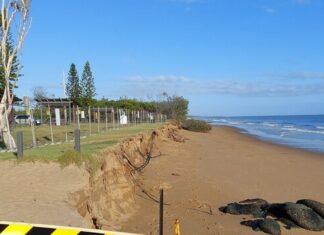Grocery bills will rise and jobs will be lost if gaps in Queensland’s biosecurity funding are not addressed by all sides of politics ahead of the State Election, an alliance of Queensland councils and agricultural industry groups has warned.
From ensuring the fruit, meat and groceries in our shopping trolleys are safe and affordable to keeping the wheels turning on multi-billion dollar industries – there are real consequences for Queenslanders if we get the biosecurity balance wrong, peak bodies the Local Government Association of Queensland, Queensland Farmers Federation and Agforce say.
LGAQ chief executive officer Alison Smith said that with 100,000 Queensland jobs and $18.09 billion injected into the Queensland economy in the last two years, getting the biosecurity partnership right was critical for protecting rural economies, keeping food and fibre affordable and sustaining our way of life.
“There are parts of Queensland that feed the nation, and so it is vital that they are kept pest-free and their produce remains affordable for shoppers,” Ms Smith said.
“That will require other levels of government helping to meet these costs, rather than shifting the problem down the line and onto councils as a last resort.
“Emerging and worsening threats to our biosecurity system – like risks of an exotic livestock disease incursion, growing impacts of weeds, and the spread of fire and yellow crazy ants threaten our strong agricultural industries and delicate ecosystems.
“We are seeking a new regionalised funding partnership that supports the on-going delivery of regional pest animal, disease and weed management priorities while ensuring that the growing costs for delivery are not unfairly shouldered by local governments and their communities.”
QFF chief executive officer Jo Sheppard said biosecurity risks in Queensland are expected to increase four-fold in the years ahead, which is concerning for all Queenslanders, not just agriculture.
“Unfortunately, current funding and partnership models are failing to manage the complex and increasing biosecurity risks and do not reflect the shared responsibility approach that is required if we are going to get on top of biosecurity risks now and in the future,” Ms Sheppard said.
“Safeguarding Queenslanders from the impacts of biosecurity threats, including destructive and harmful pest animals, diseases and weeds, is integral not just to protecting the future of agriculture but also to protecting the Queensland way of life, our communities, public health and our whole economy.
“QFF is calling for parties who wish to take office at the end of October to commit to elevating biosecurity across all government portfolios, commit to a significant investment in building biosecurity capacity in the regions, the establishment of regional biosecurity zones and to ensure all protected areas of land proactively meet their biosecurity and pest management obligations.”
Belinda Callanan, chair of the AgForce Biosecurity Policy Committee said: “Landholders, local communities, and local governments are significant but small parts of a much larger biosecurity system.
“All other stakeholders must shoulder their share of responsibility.
“Critical biosecurity outcomes will not be achieved by shifting responsibility down the chain to already struggling landholders and local governments.
“Adequate resourcing and funding are essential.”









